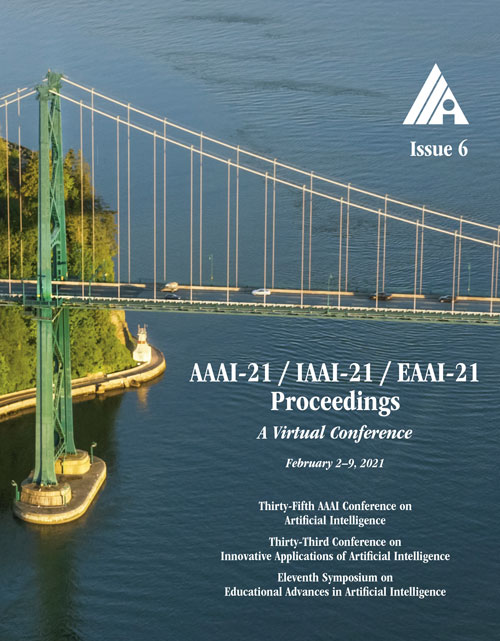Majority Opinion Diffusion in Social Networks: An Adversarial Approach
DOI:
https://doi.org/10.1609/aaai.v35i6.16705Keywords:
Social Choice / VotingAbstract
We introduce and study a novel majority based opinion diffusion model. Consider a graph G, which represents a social network. Assume that initially a subset of nodes, called seed nodes or early adopters, are colored either black or white, which correspond to positive or negative opinion regarding a consumer product or a technological innovation. Then, in each round an uncolored node, which is adjacent to at least one colored node, chooses the most frequent color among its neighbors. Consider a marketing campaign which advertises a product of poor quality and its ultimate goal is that more than half of the population believe in the quality of the product at the end of the opinion diffusion process. We focus on three types of attackers which can select the seed nodes in a deterministic or random fashion and manipulate almost half of them to adopt a positive opinion toward the product (that is, to choose black color). We say that an attacker succeeds if a majority of nodes are black at the end of the process. Our main purpose is to characterize classes of graphs where an attacker cannot succeed. In particular, we prove that if the maximum degree of the underlying graph is not too large or if it has strong expansion properties, then it is fairly resilient to such attacks. Furthermore, we prove tight bounds on the stabilization time of the process (that is, the number of rounds it needs to end) in both settings of choosing the seed nodes deterministically and randomly. We also provide several hardness results for some optimization problems regarding stabilization time and choice of seed nodes.Downloads
Published
2021-05-18
How to Cite
N. Zehmakan, A. (2021). Majority Opinion Diffusion in Social Networks: An Adversarial Approach. Proceedings of the AAAI Conference on Artificial Intelligence, 35(6), 5611-5619. https://doi.org/10.1609/aaai.v35i6.16705
Issue
Section
AAAI Technical Track on Game Theory and Economic Paradigms

